|
Helping people feel good about doing good is an important element of engagement, but it cannot be the end-game to getting people involved in positive impact.
Is it easy to feel good about things that don't do that much good? Absolutely. Is that the best we can do? Absolutely not. The end game, and point of help, should always be about what happens for the person in need. Teaching people what effective looks like for people in need, rather than finding ways to make people feel good about attempts at help, is the real future of helping people, help people. Our work at the Just Be Nice Project is about harnessing the potential of every organisation and individual into effective impacts for those in need, while remaining engaging, relevant and worthwhile to those providing the help. There is a better way. Creating extraordinary positive change in the world, by helping people make ordinary positive change.
People in need with cancer.
People in need facing extreme prejudice. People in need of mixed abilities. People in need without employment or a chance of employment. People in need growing up in disadvantage. People in need who are suffering economic distress. People in need with mental health issues. People in need without a place to live. People in need who live overseas. People in need who have inadequate education. People in need who are sick. People in need who fear for their lives. People in need who look after people in need. People in need with empty bellies. People in need who have had a life of privilege and find themselves facing tough times. People in need who have never had the privilege of a resource rich environment. We see people in need. Rather than fight about what cause is the most important, and argue among causes, we believe in creating an eco-system that works to help people in need. It starts with an acknowledgement that people find themselves in need in many different ways, at many different times, for many different reasons. Rather than take the needs of any one community as more important than another, we consider the knowledge of one community about the most effective ways to help that particular community as important. Fighting for causes too often means causes fighting against causes. We are here to fight inefficiency. We are here to fight inequality. We are here to fight for people in need. We are not here to fight inequality with only a spreadsheet and a calculator, but we are also not here to fight inequality with only misguided good intentions and a short-lived peak in emotive interest. We are not here to do things the way that they have been done in the past, because we know that we can do better. We are here to fight alongside people who believe that we can do better. We are here to fight alongside people who are tired of seeing wasted money, time and good intentions. We are here to fight for those in need. We would love you to join that fight.
The notion of the feckless poor is a common narrative among conservatives the world over. The persistent insinuation is that people are poor or 'under-performing' because of a lack of morals. Poor because they don’t work hard. ‘There is opportunity everywhere’ the conservatives say, you simply have to take ownership of your life and pursue it, if you don't, there is no one to blame but yourself.
This week, after a series of circumstances and events that one could not describe as anything but farcical, dishonest and lacking character, Scott Morrison was installed as leader of the Liberal party and Prime Minister of Australia. Among the values espoused in his first press conference, the common call to arms for conservatives of, ‘if you have a go, you’ll get a go’ featured. If you have a go. The reality is, in action, there are plenty of people who ‘have a go’ and don’t ‘get a go’ in this country. The asylum seekers imprisoned on Manus Island, having a go, seeking asylum, as is their right. Is undertaking a treacherous journey to protect your life and that of your family not really having a go? People on the NDIS, leaving about half of the people with disabilities worse off than they were under previous schemes, despite the government spending twice as much. Are these people not having enough of a go? The 2.9 million Australians that live below the poverty line, including the 36% of them who rely on wages as their main source of income, are they not having a go? Should they simply, as Malcolm Turnbull put it “…seek to earn more”? Is the renewable energy sector, with it’s huge strides towards creating cheaper power than fossil fuel sources by 2020 not really having a go? Are students in under-performing schools not having a go? Hamstrung by funding cuts and a teaching profession that treats teachers so poorly that 50% of teachers leave the vocation within a few years of starting, are we sure that these students not having a go? We need to beware of claims of equality that aren’t matched by the relevant social and legislative supports - …in societies which claim to recognize individuals only as equals in right, the educational system and it’s modern nobility only contribute to disguise and legitimise in a more subtle way the arbitrariness of the distribution of power and privileges which perpetuates itself through the socially uneven allocation of school titles and degrees. – Pierre Bourdieu & Jean-Claude Passeron. If we are really serious about giving everyone a go, then we must be serious about improving equality of opportunity for everyone. Not demanding contributions upfront from the most vulnerable, but making it our job to help them get to a place where they are able to contribute. Regardless of our ability or circumstances, we are here to make a contribution, rather than take one; that in order to you to do better, you don't think someone else has to do worse – Scott Morrison The real test of the government will be to see how serious they are about building an environment that does, in fact, foster growth and opportunity for all, and not simply a chosen few. We will be watching closely.
http://www.abc.net.au/news/2018-05-01/third-of-ndis-participants-feel-no-better-off/9716282
https://www.acoss.org.au/poverty/ https://www.smh.com.au/education/why-up-to-half-of-all-australian-teachers-are-quitting-within-five-years-20170605-gwks31.html https://www.afr.com/news/transcript-of-new-prime-minister-scott-morrisons-first-press-conference-20180824-h14h1a https://www.forbes.com/sites/dominicdudley/2018/01/13/renewable-energy-cost-effective-fossil-fuels-2020/#36a259674ff2
As we end the week with a different Prime Minister to the one we started seven days ago, it is time for us to ask ourselves, where to from here?
Do we want to be a country that is known for it’s outstanding ability to lift people from disadvantage, or for our propensity to keep people there. Do we want to be a country that celebrates success by creating an environment in which anyone who is so inclined, has the support and opportunity to pursue it, in whatever area they wish to achieve success? Do we want to be a country that looks after the most vulnerable? That by looking after the most vulnerable that are already here, set a precedent for those who may seek help from elsewhere. Do we want to be a country that ensures that the people who live here reap the benefits of the ever improving economy of energy and food production. Ensuring that everyone has access to power, water and food without the artificial price-raising of enterprise attacking the access of basic necessities for communities, businesses and individuals across the country. Do we want to be a country that leads the way, not in number, but in policy and innovation, in the direction of economic conservation. Protecting our environment and amazing natural resources not only for today but for future generations. Do we want to be known as world-leaders in environmental protection and energy production, or as followers, bowing to the concerns of the quarterly profit reports of large multi-national corporations. Do we want to be a country that values the education of all its children? Or do we want to prioritise the education of those living in certain postcodes? Do we want to be a country that acknowledges and addresses, effectively and in the long-term, the concerns and difficulties faced by our indigenous peoples? Or do we want to make excuses, blame those who have been dispossessed and disrupted by colonisation and ignore the glaring inequality of opportunity that plagues these communities? Do we want a country run by in-fighting, character poor, news poll pandering, race-baiting, dog whistling rhetoricians? Or by politicians who understand the needs of Australians and the possibilities that their office brings to unite a country under values of true acceptance, mateship and understanding. Do we want to engage further in the politics of division? Of down-blaming, blaming those less fortunate, those who aren’t in power, those who have the least amount of resources to effect change? Or do we want to hold those with the greatest capacity for positive change accountable to actually making that change. Are we committed to rewarding those who play the long game? Those who believe that everyone can do better, if we all work together. Those who believe that a country of humans doesn’t have to be separated into winners and losers, because every person has different possibilities to live fulfilling, safe and happy lives. That removing the barriers to everyone living those lives is a noble priority. Can we acknowledge that people want connection and contribution. That a happy country is one that isn't only not fighting with itself, but not fighting with others. A strong country is one that is comfortable with its identity, with its ability to win over new citizens, leading by example. As we enter yet another leadership change and head towards another federal election, we have a number of important decisions to make, individually and collectively. Where to from here?
Organisational dissonance occurs when an organisations stated beliefs, purpose, culture and actions do not all align.
There are plenty of examples of organisational dissonance, and currently, in Australia, we can see it playing out in the highest levels of government as well. Some of our bug bears, and most glaring contradictory misalignments include; Organisations that claim that businesses should be a force for good but are themselves, non-profit entities. Taking the benefits of non-profit status, while having the stated aim that it is, in fact, businesses that should be the driving force for change. Political parties that are staunchly anti-union, anti-strike action and generally have an attitude of ‘grin and bear it’ when prescribing action to their constituents, shutting up shop and closing down parliament to sort out their own internal problems, rather than simply do their jobs. Non-profit organisations that claim to want to have long-term impact, but only focus on selling and promoting short-term, instant gratification projects and activities without working to have programs and frameworks for the long-term. At the same time failing to help their supporters understand and see the value in long-term engagement to solve problems. Organisations with stated aims to assist members of a community through a single area of intervention, wanting to help a group of people, but only providing one element of the help. Ostensibly because they care about the welfare and opportunities of this particular community in need. At the same time they are refusing to work alongside or collaborate with other organisations, who provide different kinds of necessary support, to the same community. This kind of in-fighting among organisations is rife and causes misery inside and outside of the organisations. Schools that claim to value education and delivering quality education to children, that simultaneously cut the lowest performing and most in-need students in order to keep their performance results high. Organisational dissonance is one of the biggest blocks to actual equality of opportunity, as we descend further into a culture of ignoring the gaps between stated aims and beliefs and actions. No-one is perfect, no organisation is perfect, but systemic hypocrisy and dissonance should be identified and changed. Quickly. When the Just Be Nice Project works with out partner organisations, one of the first things we look for is signs of organisational dissonance, staff dissatisfaction, cultural difficulties, uncertain future goals and a lack of trust. It is possible to align what you say you want to do, and what you do and how you do it. It might not be easy, but it is possible. That is what makes character-led organisations so valuable.
In our short term, news cycle, tweet filled, Instagram storied current environment, is it any wonder that our politicians are leveraging our ever-shortening attention spans for their own gain?
Australia hasn’t had a Prime Minister go to full term since John Howard’s tenure ended in 2007. The revolving door makes a mockery of the concept of ‘Party Leader’, and the infighting and factional divisions that make up the back room, self-interested, self-centered political scene do little to advance Australia in any meaningful way. While the media blasts the most vulnerable communities and individuals for roaming in 'packs', being beyond help, and needing to be stopped at the borders, lest they destroy the country. We have the 'Prime' members of our society doing more damage to our reputation and the steady management of the country than any group of disadvantaged individuals could ever possibly do. If we want politicians to step up for the best interests of the country and the people who live here, we need to focus on long-term outcomes and hold them accountable to those outcomes. When we allow short-term political leaders to promote and enact short-term, knee jerk policy and legislation while pandering to the most extreme factional concerns, we do the government and ourselves a grave disservice. To improve the equality of opportunity for all, including the most disadvantaged communities, we need to invest in their long-term development. We need to ensuring that communities in need are getting the help that they need, when they need it, for as long as they need it. Want to feel safer? Invest in marginalised, disadvantaged communities and give them a chance to become some of the most productive, innovative and driven contributors to society. Concerned about the future of small and medium sized businesses? Invest in low socio-economic communities so that they may become the consumer base that supports and invests in small local businesses. With 2.9 million Australians currently living below the poverty line, lifting the lowest 10% of the country out of poverty would be an exponential boon to all businesses. Worried about the health and well-being of Australians? Encourage long term investment in the development and improved accessibility of the great fresh produce our country produces. Encourage investment into feeding the stomachs and minds of our children in schools across the country, ensuring that every child gets the best in nutrition, engagement, education and support all the way through their school years. Concerned about the revolving door of leadership for our Prime Ministerial office? Hold all levels of government accountable to long term outcomes. If focus more on what leaders say rather than what they do in practice, we will end up in the downward spiral of negative, backstabbing, short-term, individualist politics. Those at the far end of the political spectrums, to the left or the right, will always be able to take more extreme positions on issues and rabble rouse as a result. Unfortunately, extremities mean that the majority are being ignored. When it comes to equality of opportunity we should look to representatives who are looking to improve the lives of the many, rather than the lives of the few. If we want to improve the quality of our leadership in this country, we need to demand that our representatives are not asset rich and character poor. We need to have longer memories, pay more attention, demand answers and hold politicians, and the press, accountable for the disappointing state of affairs. We can do better, we must do better. Not just for ourselves, but for the future generations of Australians who will miss out if we don’t invest in them today. The Just Be Nice Project is committed to developing and investing in projects, programs and infrastructure that provides assistance and development to people in need for the long term, regardless of who is in charge in Canberra. If you have had enough of short term interventions, we would love to have you involved in the business of helping people, properly.
When we speak about feminism, we are speaking about;
The advocacy of women's rights on the ground of the equality of the sexes. When we speak about black lives matter, we are speaking about; The advocacy against violence and systemic racism toward black people. When we speak about wealth inequality, or social inequality, we are speaking about; The uneven distribution of resources across a given society. It is important that we have language available to discuss the concerns and barriers to opportunity that are faced by different communities around us. We must acknowledge that some people inhabit multiple ‘communities’ and that each one of these groups may face very real and complex barriers to opportunity. By acknowledging these kinds of barriers, without ranking them, we are able to discuss them sensibly, to talk about the most relevant and accessible ways to remove barriers. Some communities have overlapping concerns. Many communities have groups and sub-groups in them that have differing, diverging or independent concerns. It is not to say that any are more or less valid or important, certainly some concerns affect more or less people, but that is not to say that they are less real, or less important. They simply affect people on a smaller scale. In some instances, removing barriers to smaller, granular communities is a very effective way to begin a pathway to improving opportunity for larger, more homogeneous groups of related people. For instance, attending the needs of Refugee South Sundanese Nuer Women in the Western Suburbs of Melbourne, might be an effective way to implement, workshop and develop strategies to assist migrants generally in the future. In other ways, removing barriers to large, homogeneous communities containing many sub-groups is more effective – i.e. universal healthcare for everyone. This is far more effective than trying to assess and determine how each individual should get funded or not funded for healthcare. Chimamanda Ngozi Adiche, in her book We Should All Be Feminists notes that we should not be limited by the stereotypes of individual labels like feminist, but that we should use an understanding of the need to address things like gender inequality through the proper language. This is to say further, that we should take individual responsibility to understand the needs and inhibitors to productive discussions on these issues in all directions. Instead of saying that you believe in human rights (which should begin a conversation about the rights of all humans), to say you are a feminist is to acknowledge “The specific and particular problems of gender.” We wouldn’t tell someone who had bowel cancer to simply say they were ‘sick’, that would not acknowledge the specific and particular nature of their illness. Of course, everyone with bowel cancer is sick, in the same way that feminists can be concerned with human rights for all. The importance of identifying barriers is so that we can address the causes and effects of these inhibitors and remove them. We need to stop comparing and fighting among issues, saying things like “why be a feminist, why not care about all human rights?”, “Why black lives matter? Why not all lives matter?”, “Why are we talking about Indigenous disadvantage, what about the other poor people?”. To name an issue is to have a discussion about that issue. Certainly, there is overlap between issues, but there is nothing less productive than to enter a discussion about the disadvantage experienced by one community, with something that looks like “what about this other community?”. Yes, we can speak about various kinds of disadvantage and inequality, but we must look at each school of difficulty for what it is, not what it is in comparison to other inequalities of opportunity. Looking at how different kinds of disadvantage inter-relate is important, fighting about which kind of disadvantage is more important to talk about at any given moment, is counter-productive and we should probably do it less. Practice understanding, practice learning about experiences different to yours, and as always remember, Just Be Nice.
Diversity won’t magically appear by passively saying that we want more of it.
Diversity needs to be developed. It needs to be developed by improving equality of opportunity in diverse communities. Diverse communities mean different things to different industries. Diversity can come from gender, age, country of birth, level of education, type of education, interests, socio-economic status and background. Lived experience and missed experience. Where people are from and where they live currently, what their family situation looks like and the way that they process information. Diversity is about casting a wide net and finding ways to incorporate people from all areas of the net into what you do. Unfortunately, opportunity is useless if people who are on the receiving end of this opportunity don’t recognise it. It is ineffective if there are people who believe that this opportunity is ‘not for them.’ We need to spend time investing in communities that are traditionally under-resourced, under-skilled and less confident that the opportunities for development that exist in the world, apply to them. Diversity won’t happen if we attempt to develop it in silos. You can’t simply demand that we have more female engineers, without first engaging young people in developing the relevant building blocks of knowledge, upon which they can become engineers. You cannot demand that there are more people of African descent working as lawyers without developing the skills, confidence and experience of those communities to understand, what a lawyer is, what they do, why you would want to be one, what you would need to do to become one and why it is possible for you to do that. Identifying opportunity blockers and removing them. Attempts at diversity do not start in the boardroom, they start in diverse communities. If you do not have a single board member who did not go to an independent school, then is gender or ethnic background the only diversity that you need to improve? Or can you address the gender and ethnic diversity issues by developing individuals from resource-poor environments of all ethnicities and genders? Is diversity of experience just as important? An interesting element of our community-based diversity development programs is also addressing the fact that technically, you cannot ask diversity related questions when hiring people. You cannot ask if someone is a Muslim, or Sudanese, or if they’re pregnant or if they grew up in a resource-rich or resource-poor environment. You can guess a few things by looking at someone, but it is illegal to hire or not hire someone based on their gender or ethnicity. What if you had a steady stream of diverse, work ready, skilled, willing and able candidates coming through as you looked for hires? What if you didn’t need to ask any diversity questions because you knew that the candidates came from diverse backgrounds? What if they came not looking for charity jobs in order to meet diversity hire quotas, but came ready to go. Ready to contribute in a relevant and meaningful way to the work that you do? At the Just Be Nice Project we identify links between available development opportunities and desirable industry skills. Working to build programs that improve equality of opportunity for diverse communities, supporting their development and bringing skilled, engaged individuals to industry. Diversity starts through the support of community development, it is a long-game, but one that can pay big dividends to the industries and organisations that support it. If you are looking for ways to improve diversity in your organisation. Get in touch. We'd love to hear from you.
Imagine a scenario where you are in need of help.
Perhaps you are homeless, perhaps you are a struggling single parent. You have been battling this scenario for many years, you have made efforts to improve your situation, but it is exceptionally difficult. From time to time, over the years, people have popped in, asked for your story. They have listened, empathised, express sympathy. You have told them your story, your fears and difficulties. It is emotional labour. Exhausting. You trust that they care. Then they do one thing for you, maybe two… Maybe you never hear from them again. Maybe after the story they don’t do anything. Sometimes, after a big effort of help, for a period of time, when it all gets a bit much for the acquaintance or friend, when the service runs out of resources, or when the family lacks the material means to continue to assist. Then, after the glimmer of hope. After the baring of your soul and exposing your most vulnerable fears and difficulties, nothing. The promise of help, the promise of understanding and a feeling of connection and possibility. Then nothing. Now imagine this happens over and over again. And over and over again. Eventually your ability to trust that good things can happen, that help is real and might work is damaged. Maybe irreparably. When real help turns up, after all of these disappointments. When actual opportunity knocks, how would you have the capacity to not only recognise it, but to take it up wholeheartedly? Consider if surgeons started surgery before they were confident that they knew what was wrong, or that they started doing surgeries without taking the time to do the training and learning about how to diagnose and perform surgery. Consider if they started operating before they had the resources to finish the surgery, stopping halfway and leaving you open and vulnerable on an operating table. We would consider that to be negligent, we would not consider ‘isn’t some surgery better than none’ to be an adequate excuse. Likewise, sometimes rushing into ‘help’ without proper a proper understanding of what is happening, what is needed to help and the resources to help can be worse than waiting, taking your time and ‘not helping’ right away. People in need, do indeed need people to be nice. We can all be nice, if we are already nice, we can all be nicer. It is harder to do good. Doing good requires time, dedication and resources. Doing good requires more time, but being nice can happen right now. If you find yourself in a situation where you feel compelled to do good for someone in need, maybe take a moment to audit your capabilities and the needs of the person you are speaking to. Is it a moment to Be Nice, or is it a moment to Do Good? Be honest with yourself and with the person in front of you. How many botched surgeries would it take for you to distrust surgeons and perhaps end up avoiding life-changing or life-saving surgery because you'd been let down before? If that same surgeon had simply said, "I don't know just now. I can't do anything right at this moment, but I am working to get the skills and resources together to be able to fix this for you or others in the future. Right now I can be nice, be understanding and apologise that the help that you need is not available. I can seek out people who may be able to help, but I'm not sure where they are or where to start. Right now, I can give you a coffee, a sympathetic ear and a moment of empathy and understanding. I am sorry that the help is not right here for you. I will help those who help others so that this does not remain a problem for ever." In the future, the person needing help may indeed have the trust required to buy in to the help, when it finally arrives. Improving the process and outcomes for everyone. We encourage everyone to be nice, on their own time, all the time. We help everyone to do good, ensuring that you become part of a process that provides the assistance that people need, when they need it, for as long as they need it. If you'd like to be a part of the solution. Subscribe and get in touch below. We'd love to have you. The influence of the religion paralyses the social development of those that follow it. No stronger retrograde force exists in the world. I believe that the reasons for ending all further Muslim immigration are both compelling and self-evident. -Anning
This week senator, Fraser Anning of the Katter Australia Party (Full Transcript here) addressed the Australian Senate..
Excerpts of the speech, party leader Bob Katter's response and Annings non-apology are all available to watch below. We cannot stress enough, this xenophobic, inaccurate, wildly inflammatory speech does nothing to advance the cause of improving equality of opportunity for any Australians. For a representative of 'Australian' Ideals, Anning seems to forget that the second verse of our national anthem begins with; "For those who come across the seas, we've boundless plains to share." Without even going into the abject abuse, disenfranchisement and continuing negative impact of colonialism on the Indigenous Australians, the current anthem for Australia includes room for those from across the seas. Not Europeans from across the seas. This divisive, hurtful and false rhetoric from our parliamentarians must be called out, but even further, their divisive and damaging actions must be called out too. This is not ok. Australia can absolutely do better. We see the very best in the opportunities for positive impact that can be had, through effective corporate and community engagement and management. Keeping people doing what they are really good at, on the road to effective impact, and making sure that people who need help, get the help that they need, when they need it, for as long as they need it. Keep looking out for each other, keep supporting the most vulnerable in our communities, and as always, Just Be Nice. While all Muslims are not terrorists, certainly all terrorists these days are Muslims. So why would anyone want to bring more of them here? - Anning
|
Just Be NiceA collection of articles relevant to pursuing the effective execution of altruism in the search for equality of opportunity. Archives
February 2020
Topics
All
|
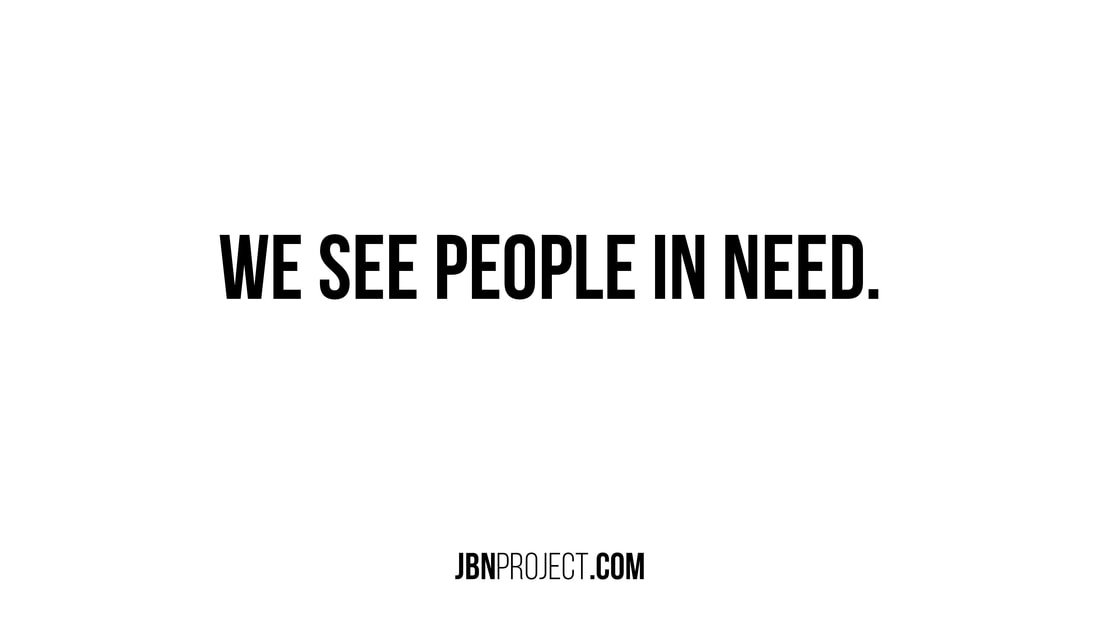
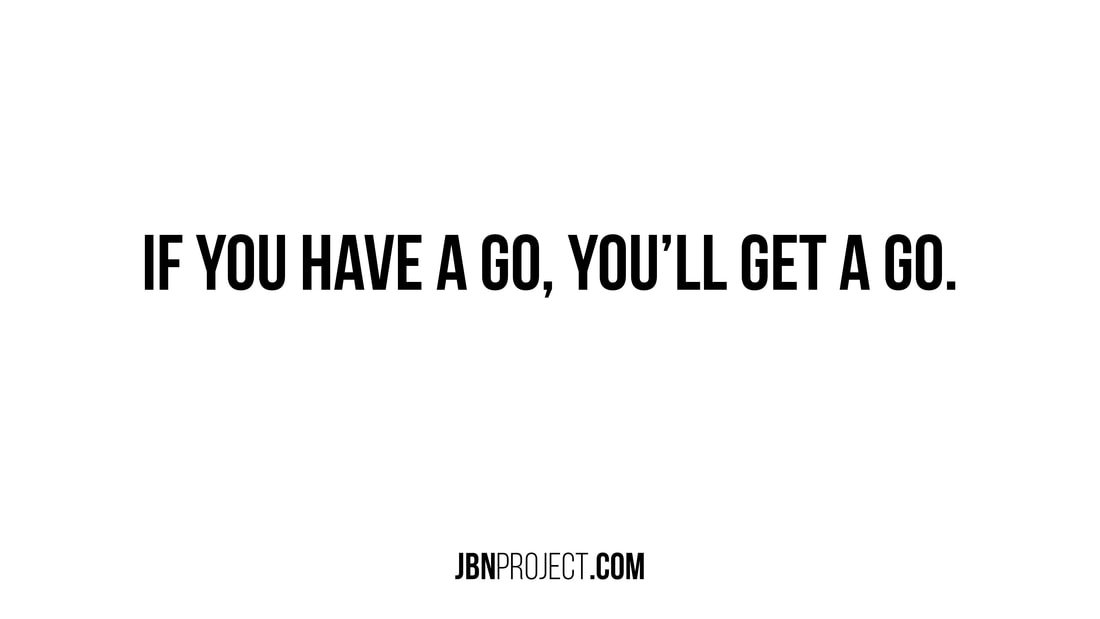
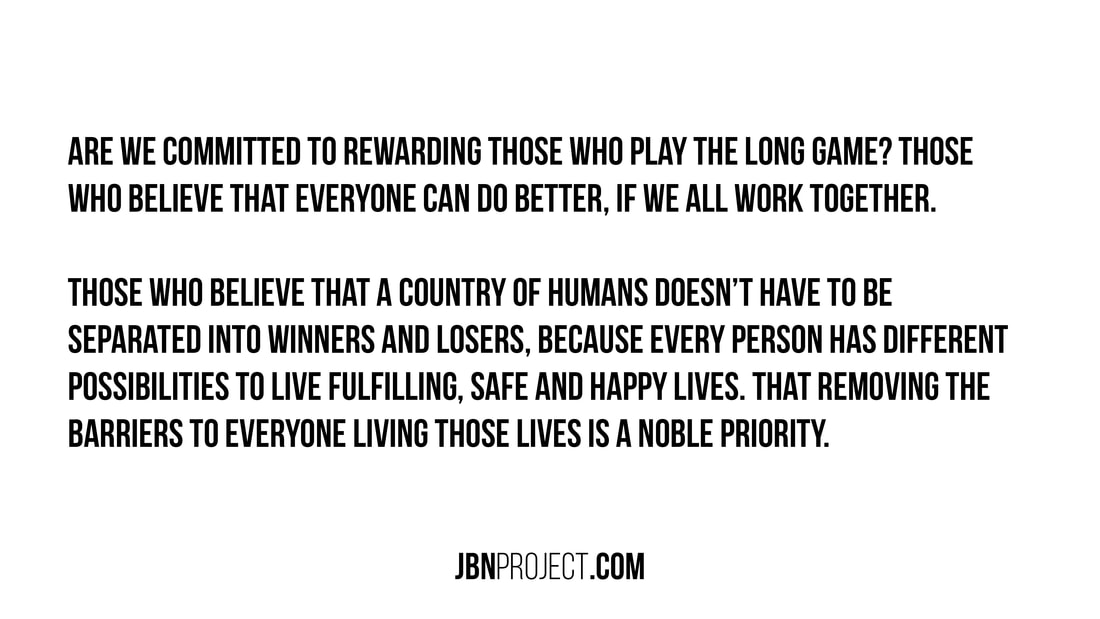
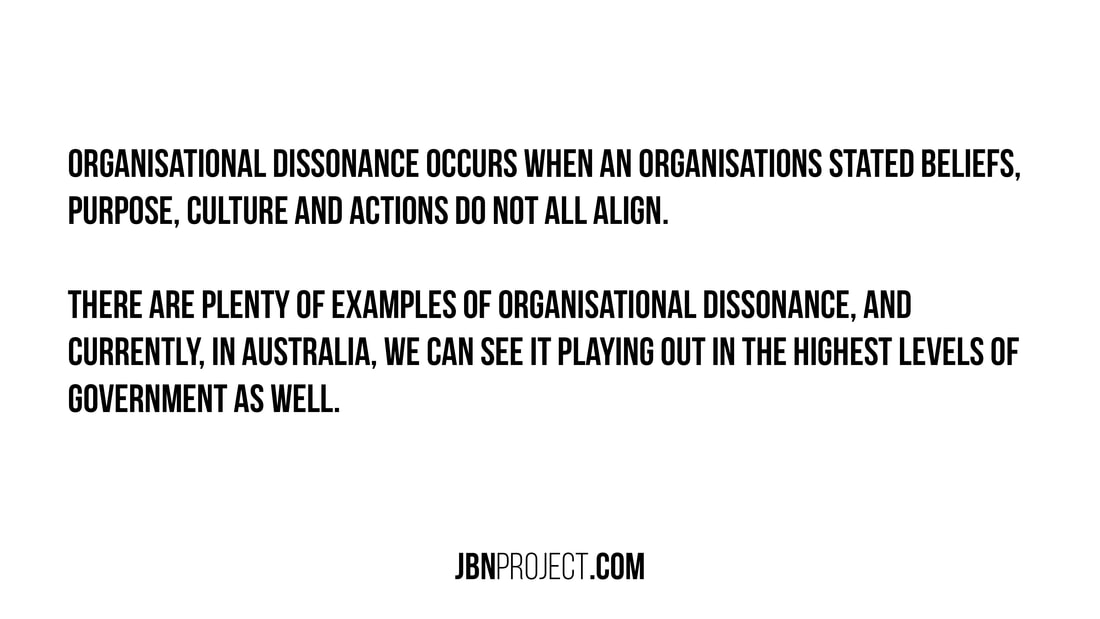
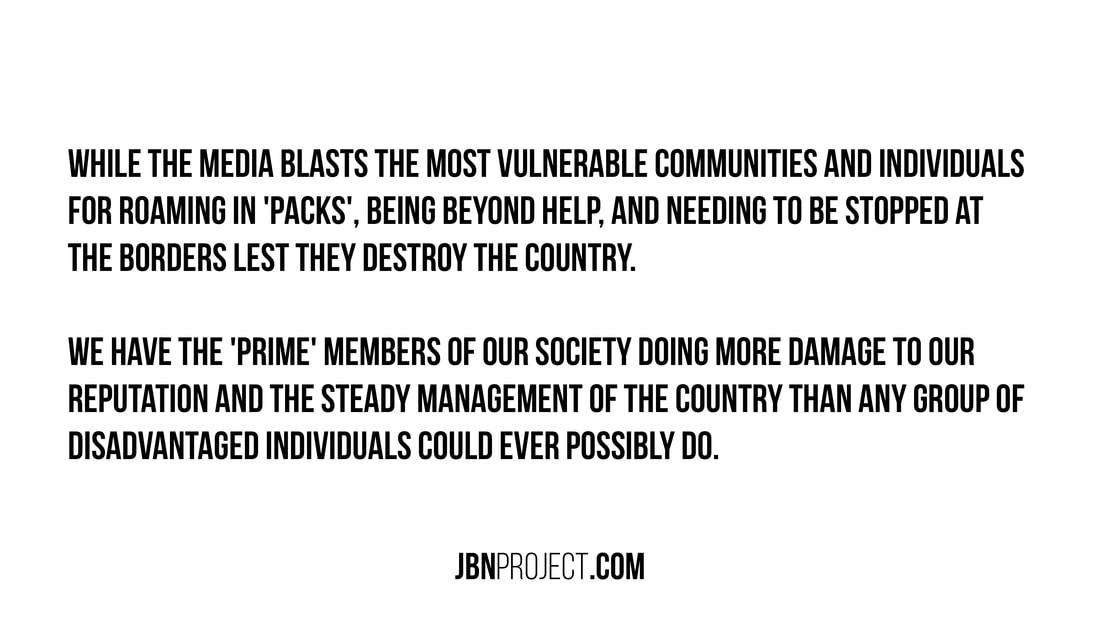
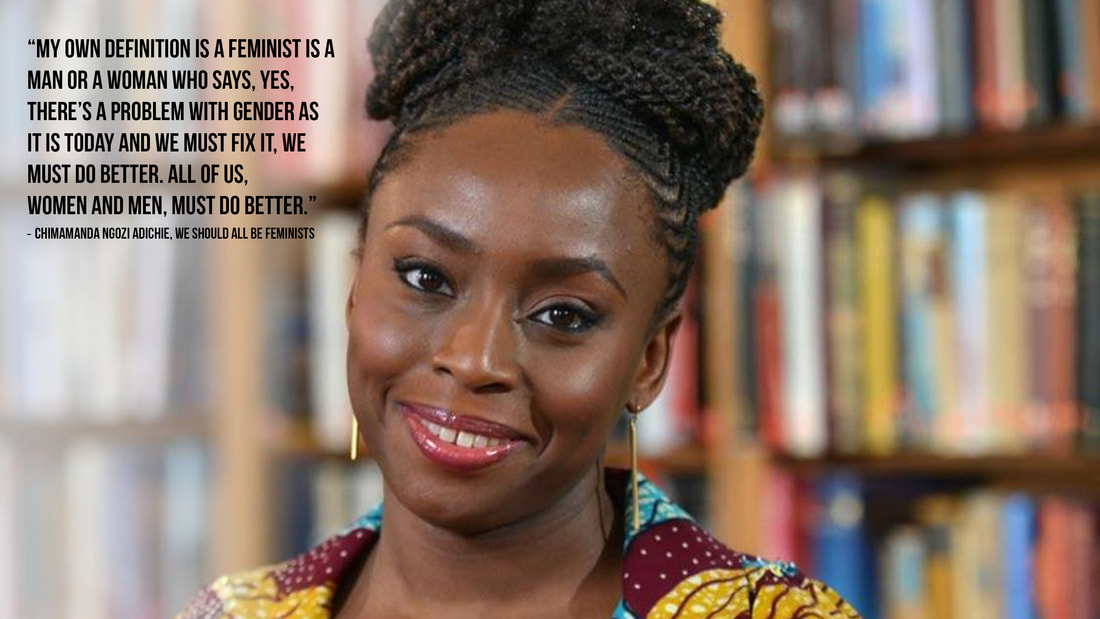
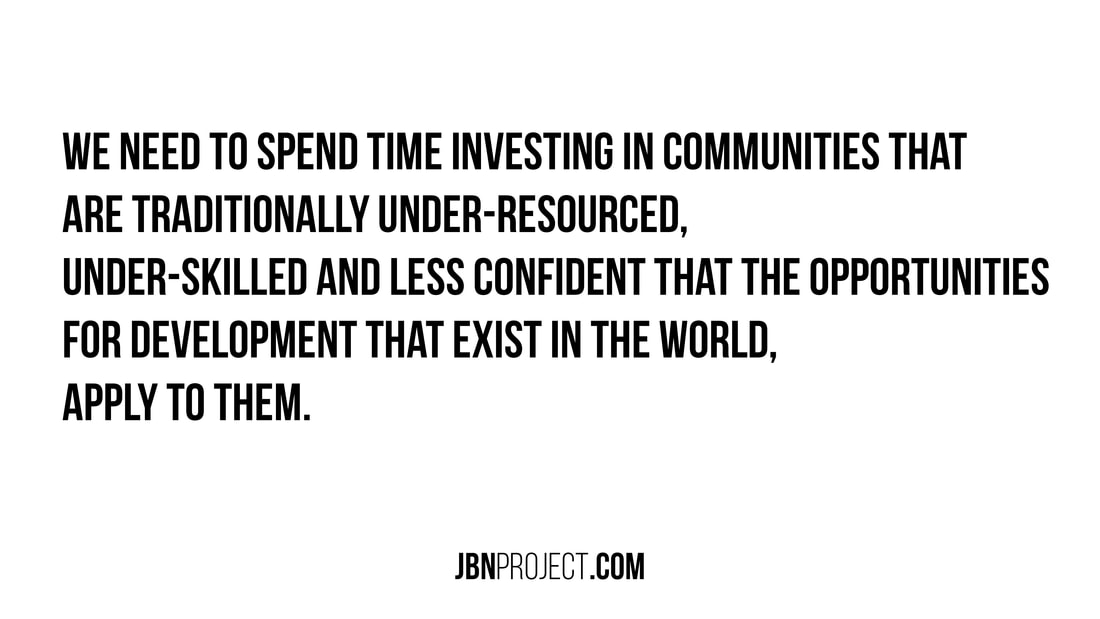
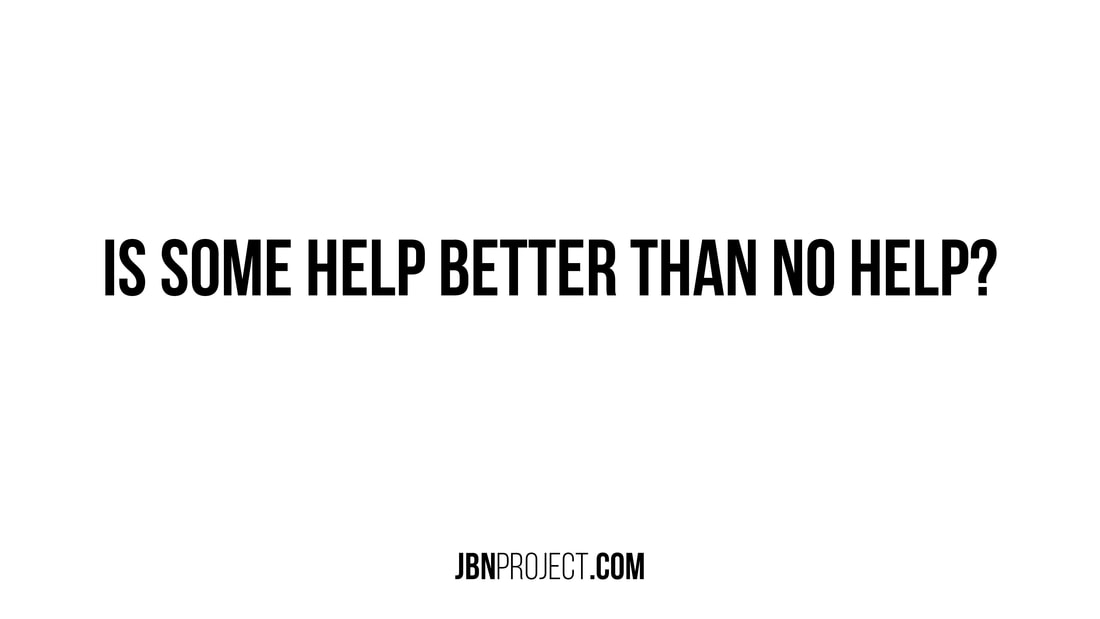
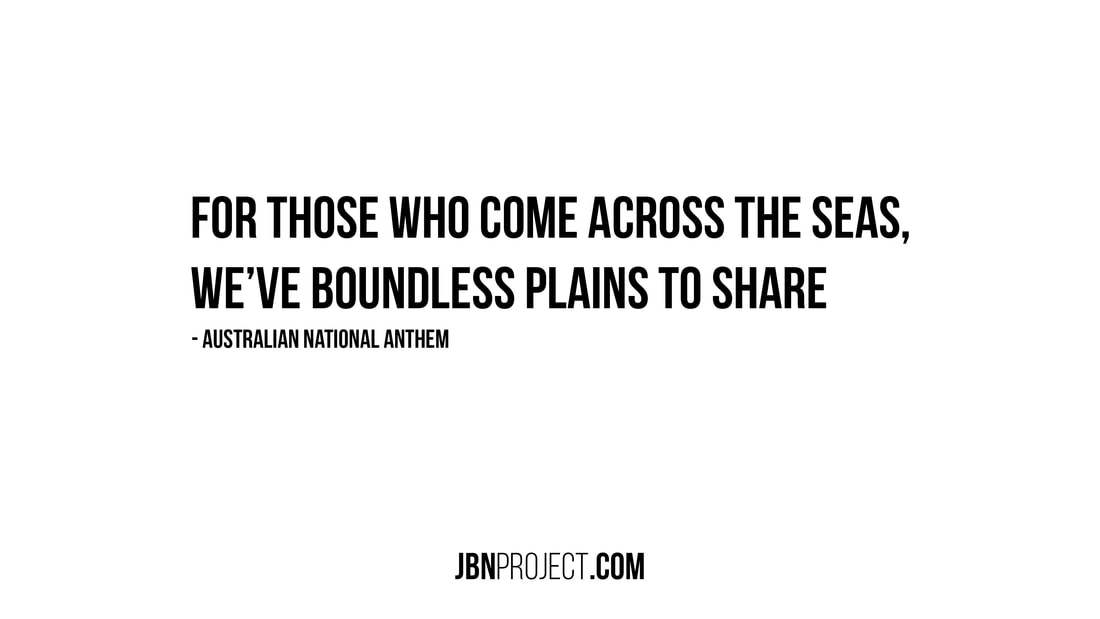
 RSS Feed
RSS Feed